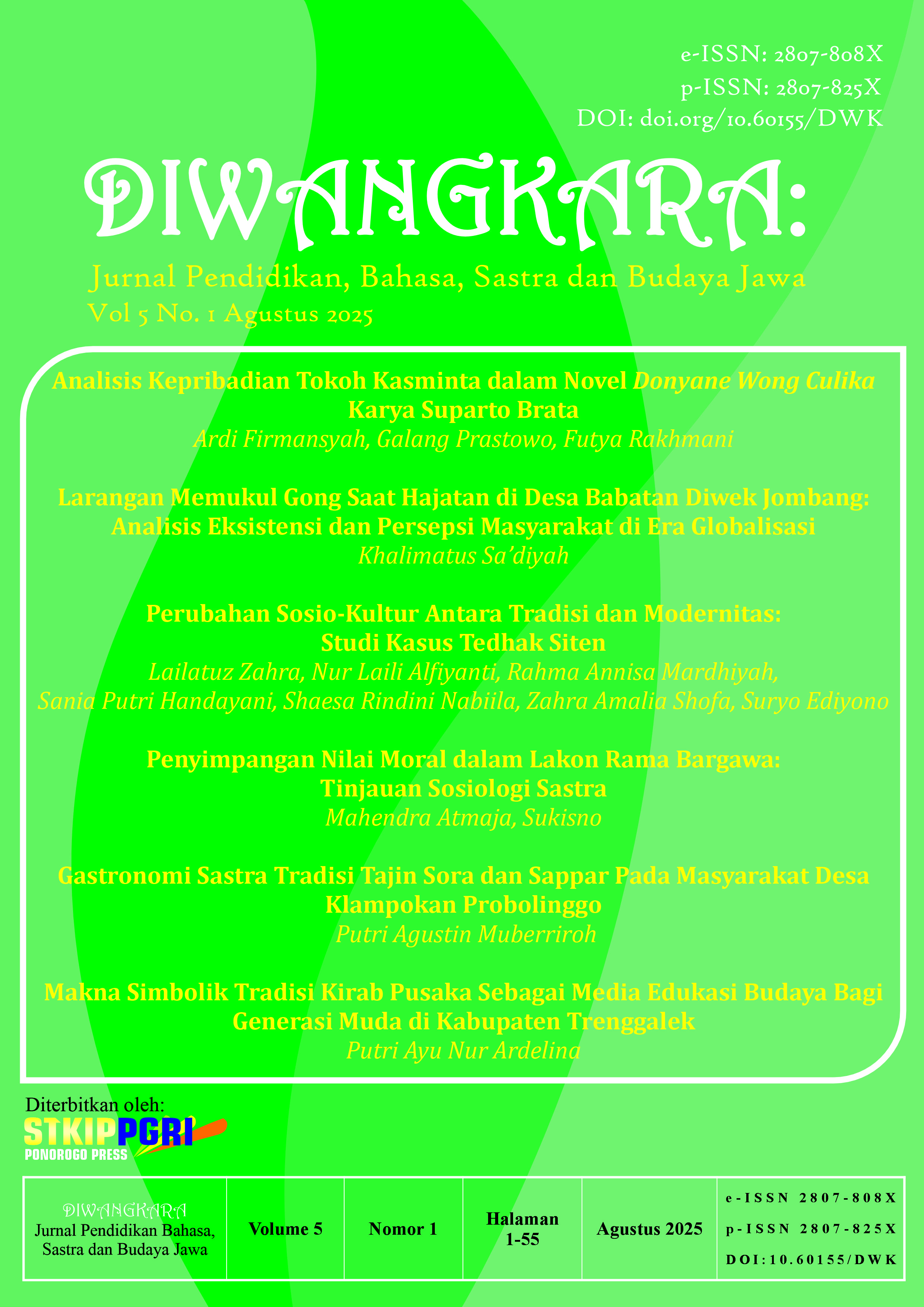Gastronomi Sastra Tradisi Tajin Sora dan Sappar pada Masyarakat Desa Klampokan Probolinggo
DOI:
https://doi.org/10.60155/dwk.v5i1.662Keywords:
Tajin, Literary Gastronomy, SemioticsAbstract
The culinary traditions of Tajin Sora and Sappar in Probolinggo are a cultural heritage rich in symbolic, spiritual, and social values. These traditions are often viewed as mere annual rituals without deep meaning, yet they contain philosophies that represent local cultural identity. This study aims to uncover the symbolic, philosophical, and historical meanings of Tajin Sora and Sappar as cultural expressions of the Probolinggo community. The method used is descriptive qualitative with data collection techniques such as observation, interviews, and literature studies, and uses approaches from literary gastronomy and food semiotics. The results show that each element of the food, such as color, ingredients, and shape, symbolizes the values of life, purity, fertility, and hope. White porridge symbolizes purity, Candil porridge symbolizes the seeds of life, while coconut milk and pandan leaves represent harmony and protection. In addition to symbolic values, these traditions also contain social values of togetherness and solidarity. The conclusion of this study shows that Tajin Sora and Sappar are not only part of culinary practices but also serve as a medium for inheriting cultural values that are important to preserve amidst the challenges of modernization.











